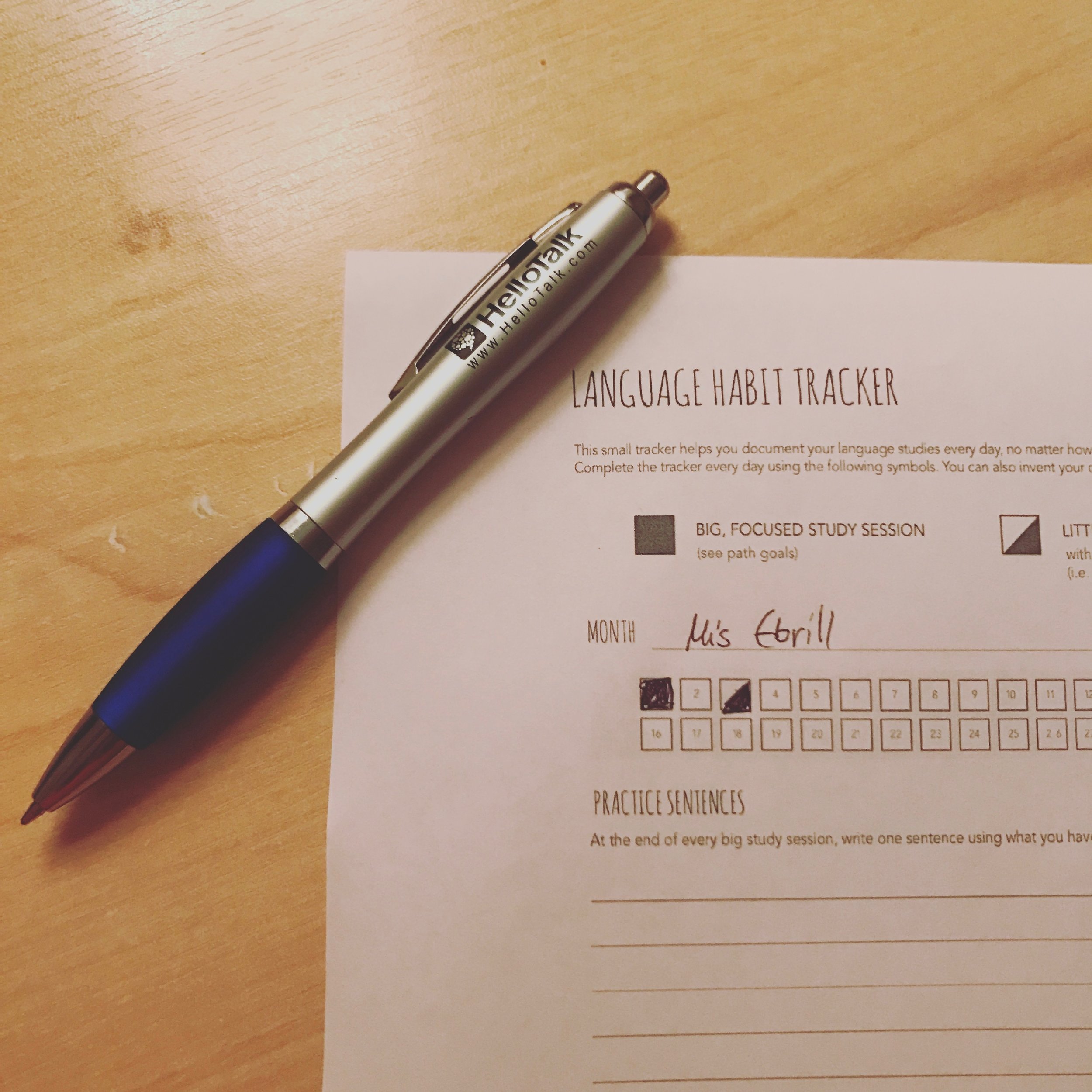Here on the Fluent Language blog, we have previously covered the idea of invisible progress and how it affects your motivation. No language learner will find it easy to maintain high motivation and dedication when they feel like they are going along without much direction. So how do we make the progress a little more visible?
This is a look behind the scenes of a language tutor's work - all the prep and track work that students might not see, but that will be an important part of the service. My aim is not just to help my students learn, but to keep them going and keep an eye on what's already been covered and I do track every lesson.
The Eureka moment doesn't come without Eureka work
Think Outliers and practice hours and remember that you are working systematically towards the moment when it all falls into place. Not as beautiful a story, but achievable.
Here are a few steps that you as the language learner can take in order to keep track and stay motivated.
©dmachiavello on Flickr
Step 1: Decide where and how you will keep track
You will need a consistent place to do this, and one that is easy to use and very accessible. Basically, what we are looking for is a template which can be as low-key as a desk calendar or as high-powered as Evernote.
The important things are as follows:
- Make sure it's accessible enough for you to use all the time. If you travel, a paper notebook might be better than an app that needs to be online all the time.
- Make it consistent, so that once the template works for you, you'll only need to fill it in. Predicability is key here.
For me, formatting and printability were more important than universal access so I settled on creating a template that works for me, in MS Word.
Step 2: Write desired objectives
Self-taught learners in particular should have an idea of where they want to get to. The key to planning is to mke sure your objectives actually make sense. So write down a 1 month goal, a 3 month goal and a 12 month goal. This can be as poetic as you like, so "Have a conversation with a real German market trader" can go up there.
Step 3: Break it down into smaller tasks
I insist that you cannot actually have that market chat without taking lots of individual steps, and here's how I may break them down:
- Learn all the numbers and currencies
- Cover question making strategies in German grammar
- Select items I would like to buy
- Learn words for products
- Learn market-relevant verbs and phrases
- Arrange for travel to the German market
You should be looking at the long-term goal and breaking it down into smaller steps, then list the smaller steps as SMART goals.
Smaller steps for arranging travel to the German market?
- Research German market towns
- Choose trip destination
- Ensure trip dates match market opening times
- Choose travel companion
- Book flights
- Book accommodation
- Exchange money
- Sort out visas
- Leave space in my suitcase for purchases from German market
If it looks so simple that it's all obvious now, remember your original goal was to talk to a German market trader. How did you think that was going to happen?
Step 4: Check in regularly
The check in dates are the ones you chose in your objectives, and you are looking for an idea of how much closer you have come to the overall goal. These check ins are a great contribution to knowing whether your language learning project is running on time or behind, and they will also give you a chance to fix anything that's going very wrong.
Should you be checking in and realising you've been way too ambitious, you only need to stay calm and work out what you actually got done. That's your realistic working pace. Apply it to future goals, without judgement. You will now know if you can achieve the end goal in a year or not, and will be able to add 2 months on at the end if required.
Plan, Track and Optimise With The Language Habit Toolkit
If you want a step-by-step guide to creating your personal language learning system, check out the Language Habit Toolkit, featuring language trackers, goal-setting guides and a review sheet to help you cut out the unnecessary and speed up your progress to fluently communicating in any language.
Thanks for reading this article on Fluent - The Language Learning Blog. Don't forget - if you sign up to our newsletter, you will receive a free Guide to the Best Language Learning Resources!









